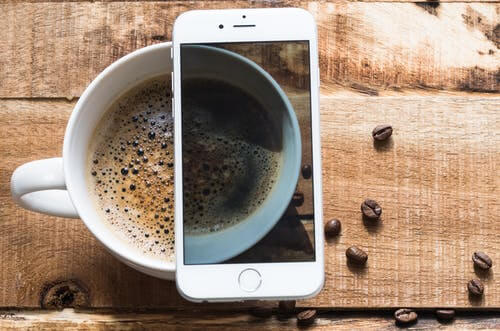CONSISTENCY
This week we are going to focus on consistency; setting your fasting app each day and doing some form of intermittent fasting for 7 days, including the weekend.
Your fasting window can vary from day to day, remember you are aiming for consistency not perfection. It is completely natural to be able to fast longer on some days and less on others. Your hormones, mood, emotions, stress, life situations will all have an impact on your daily fasting practice. You are learning to include fasting into your days regardless.
Do not feel down if you have to end your fast early. You did not fail.
Your goal for this week is consistency, i.e. fasting of some sort daily. If you can do that, you will have succeeded.You can remain flexible within your set time. View it as guidance not a precise to the minute rule.
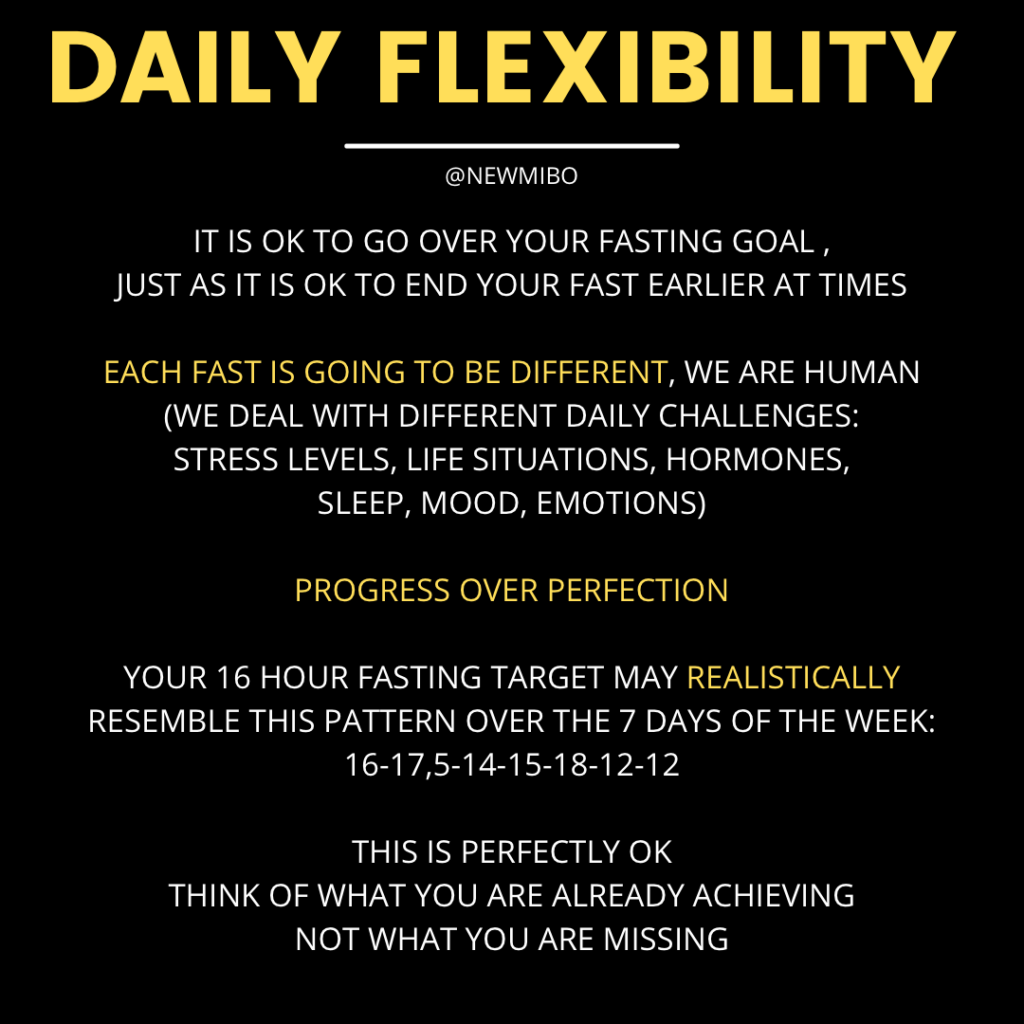
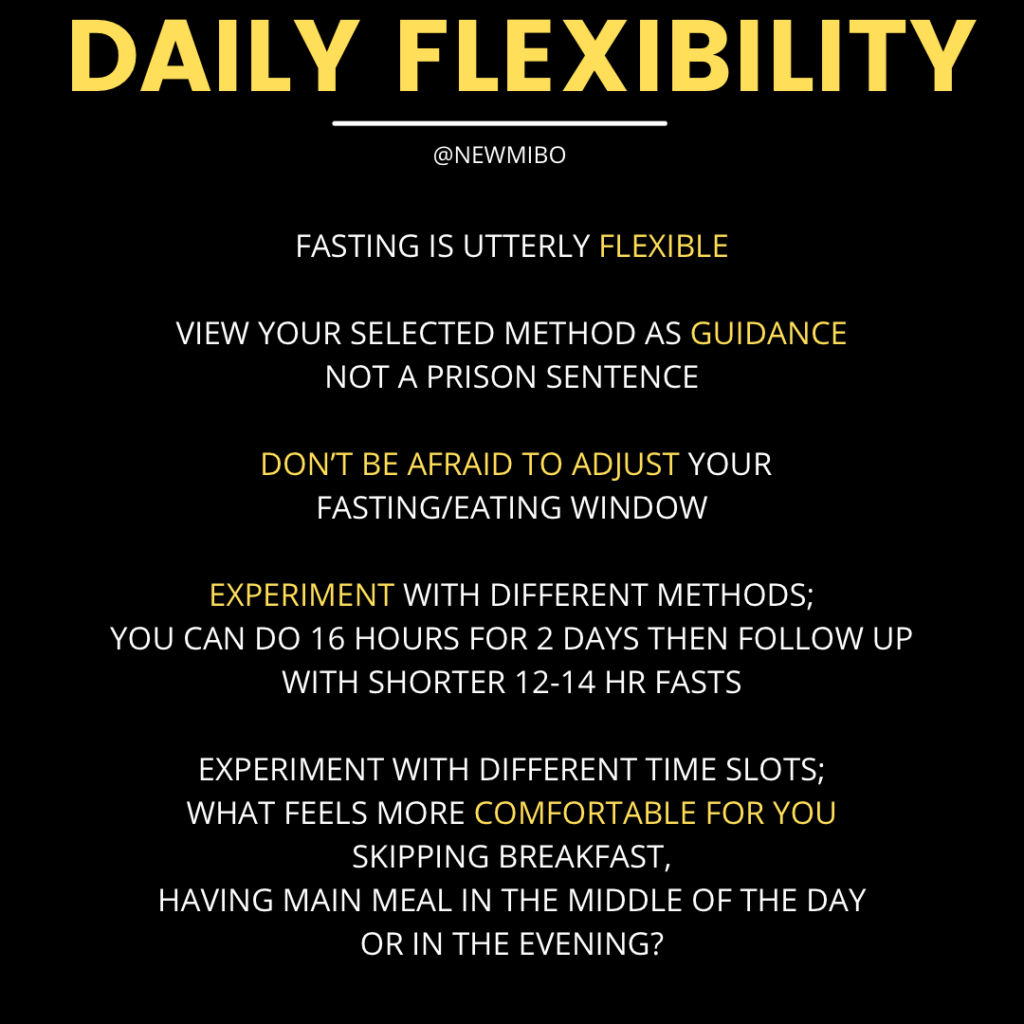
HUNGER GAMES
Undoubtedly, you will experience hunger.
It will be uncomfortable at the beginning considering most of us are coming from a mindset of curing hunger as soon as it arises. Your old lifestyle was about eating as soon as you felt hungry or even to prevent the potential feeling of hunger. Fasting is the complete opposite of that. You are deliberately pushing your body to release hunger signals which you then ignore in order to force your body to feed off its own fat stores.
If you have excess fat in your fat cells your body can never go hungry. It will, however do anything to protect the storage. This is where the hunger signals come into play, your body will try to make you refuel with food, you stomach will be growling, your mind will be thinking of food, etc. This is part of the survival mechanism, however if we allow our bodies to store a little too much energy it will become detrimental to our health. I view this as a fight between the body and the mind.
You want your body to burn its own fat for fuel hence why you’re witholding food for a set time period. Your body on the other hand doesn’t want to burn fat thus is trying to force you to give in to the hunger signals and provide more energy in form of food. View this as a challenge.
Once your body becomes accustomed to fasting and starts burning its own fat for energy, your hunger will lessen. If this wasn’t the case no one could possibly practice intermittent fasting as a lifestyle choice. The adaptation process will happen but it will take time.
Dr Fung’s list of 5 natural appetite suppressants:
1. sparkling mineral water
creates a sense of fullness, may help with stomach cramps and growling
2. green tea
may help stimulate metabolism, it is also a recommended weight loss aid
3. cinnamon
may help suppress hunger and is thought to lower blood sugar. You can add cinnamon to your tea or coffee when fasting.
4. coffee
powerful appetite suppressant also believed to raise metabolism thus encourage fat burning caffeinated or decaffeinated are both effective
5. chia seeds
high in soluble fibre, these seeds soak up liquid and expand in size, which creates a sense of fullness and may aid in appetite suppression.
Add 1TB to water and drink straight away or let it soak up some of the liquid and eat the jelly like pudding.
Although these technically break a fast, Dr Fung states that
“the effect is so slight it does not significantly detract from the benefits of the fast.”
(page 240, The Complete Guide to Fasting)
This brings me to the next point and that is fast fasting
FAT FASTING

It may seem counter intuitive, adding fat when your aim is to lose fat, but the point here is to keep insulin low. We can not burn fat in the presence of insulin. This article explains more in depth the idea behind fat fasting please have a read.
You can add 1 tablespoon of fat to your coffee or tea. This can be ghee, butter, coconut oil, mct oil, cacao butter, full fat cream or full fat milk. The calories will break a fast but at least you remain in the fat burning zone. This strategy is also recommended by Dr Fung.
I personally use fat beverages as an emergency measure. When I feel hungry but don’t want to end my fast with a meal as yet, if I have to postpone my meal because something came up then I would have a fat coffee to sustain me for the added hours of fasting.
Don’t be afraid of fat. Try it but don’t rely on it. It is always better to have a cream coffee then to end your fast early with a meal. You do not need to be following the ketogenic diet for this to work. Be open to new ideas you are changing your lifestyle so it only makes sense to try new things, the old lifestyle didn’t work leave the old thinking and beliefs behind.

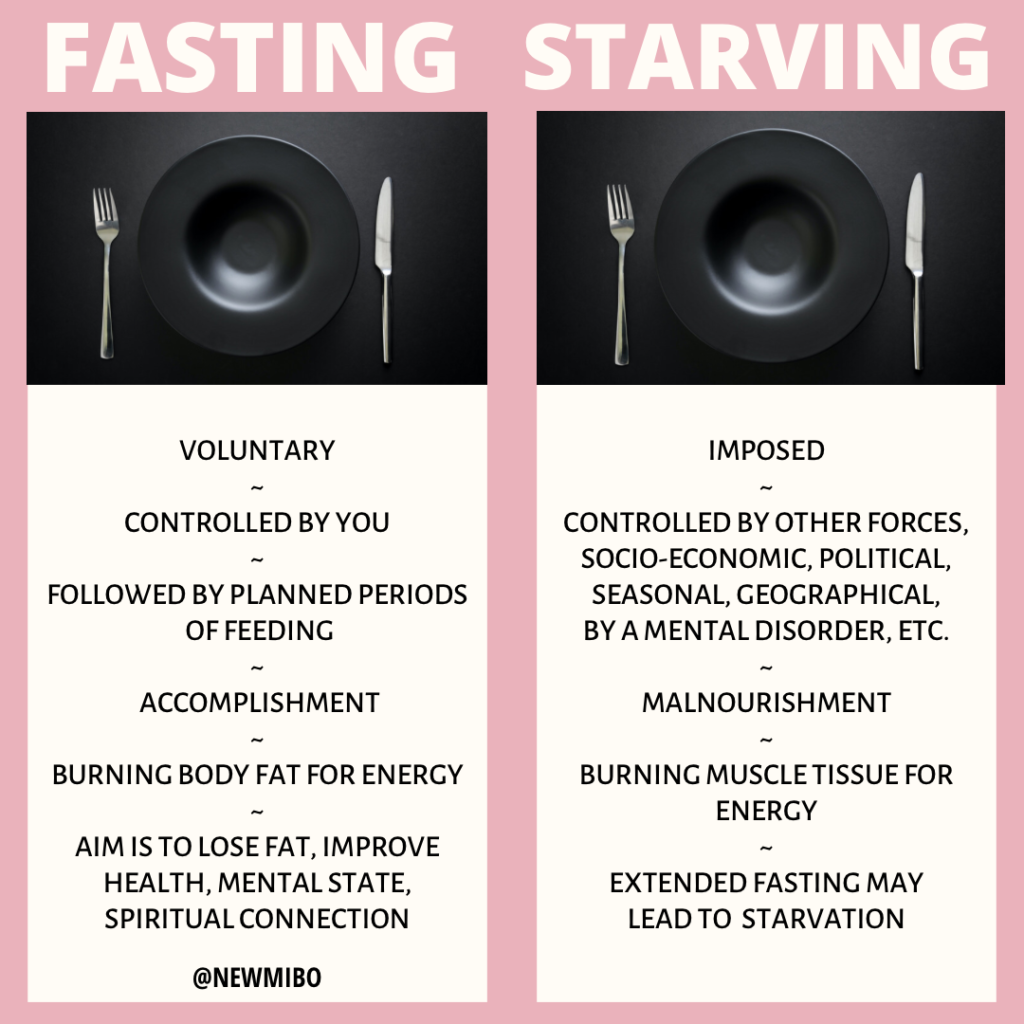
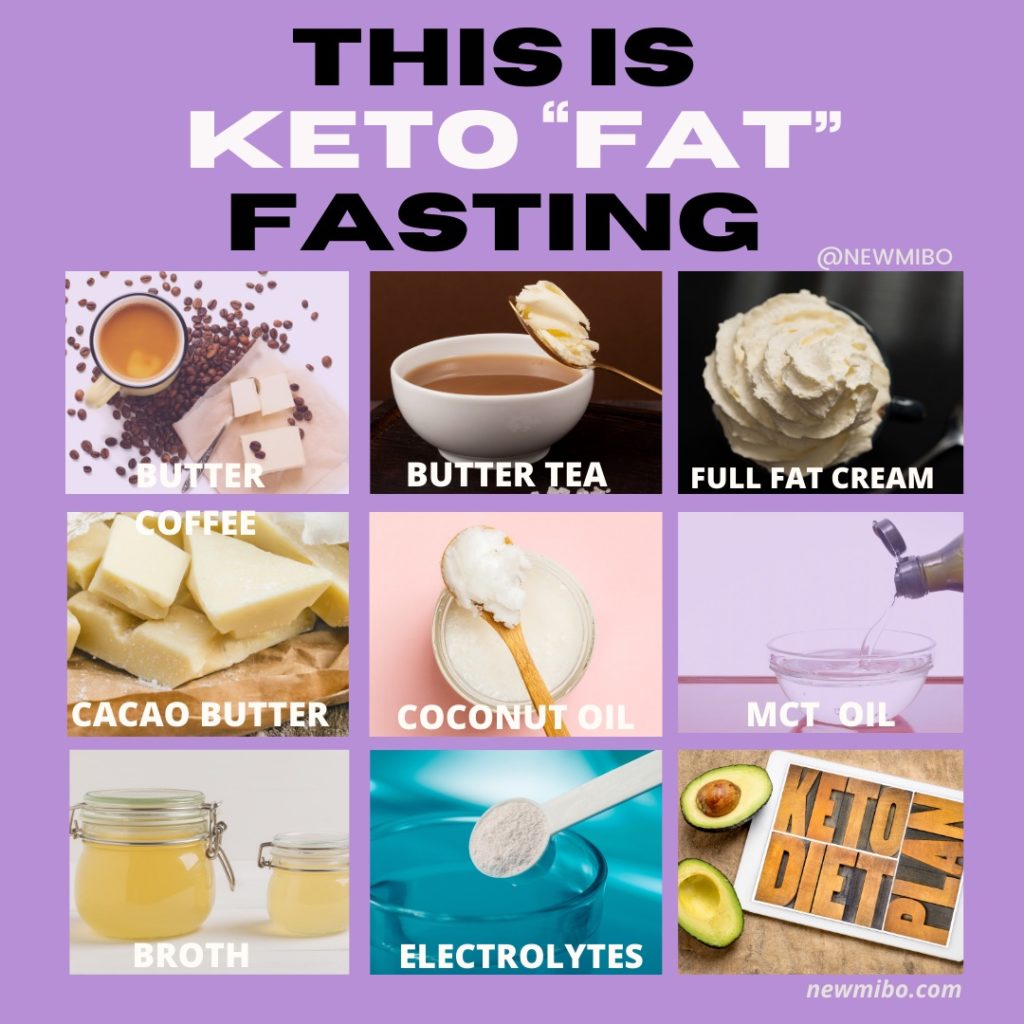
WHAT ABOUT DIET
This is your second week of intermittent fasting.
Do not start changing your diet no matter how tempting it might be. Remember, we are not dieting, we are learning to set boundaries around how often we eat which will inevitably result in reduced amount of eating.
Focus solely on adhering to your selected time frame until it becomes second nature. You can always adjust and improve your diet at a later stage if you wish to do so. People mostly fail because they try to change too many habits all at once. We only have limited amount of will power and the more you’re trying to use it the quicker it runs out.
Fasting is different from dieting because it is extremely simple yet very effective. Do not complicate it. The simpler you keep it the more chance of you being able to sustain it long term, even for the rest of your life.
Leave all those dieting rules in the past, after all most of you have tried endless rule following already, instead turn your focus to reaching your fasting target
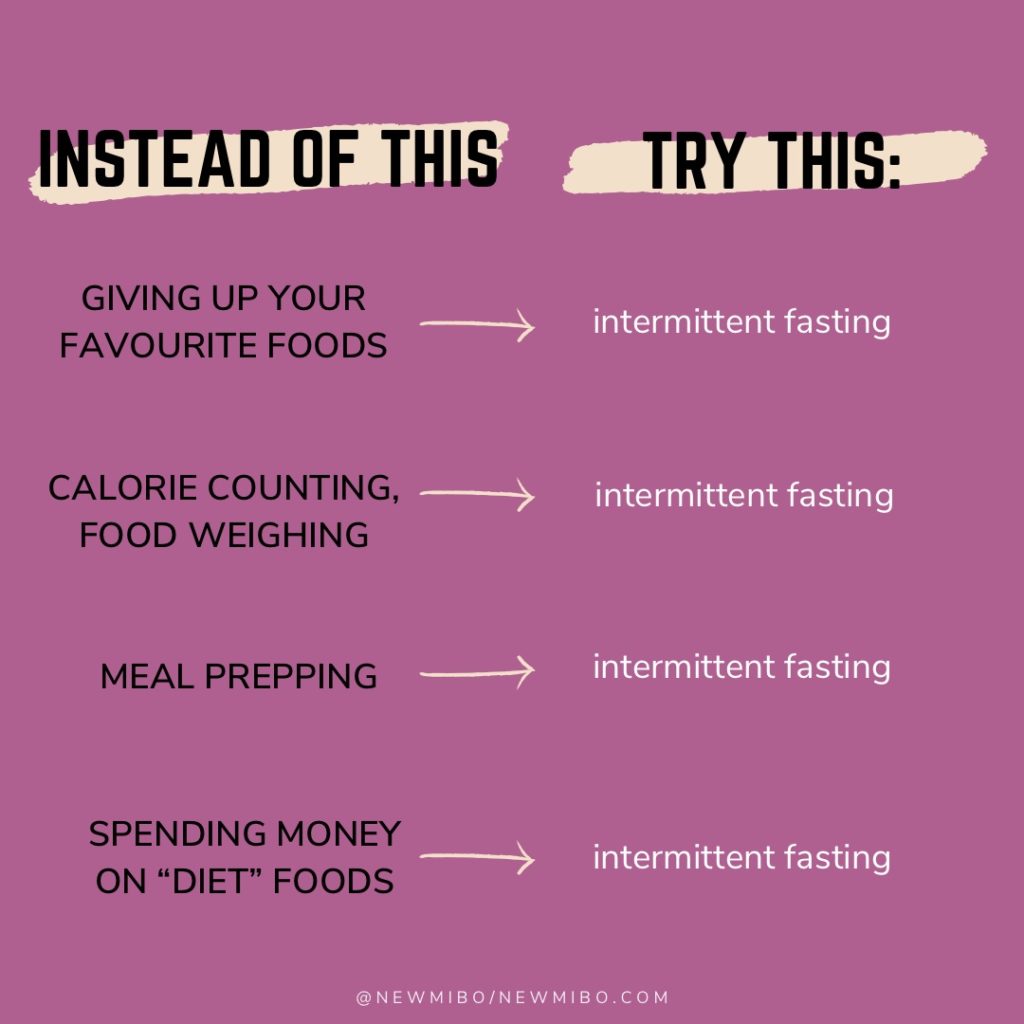
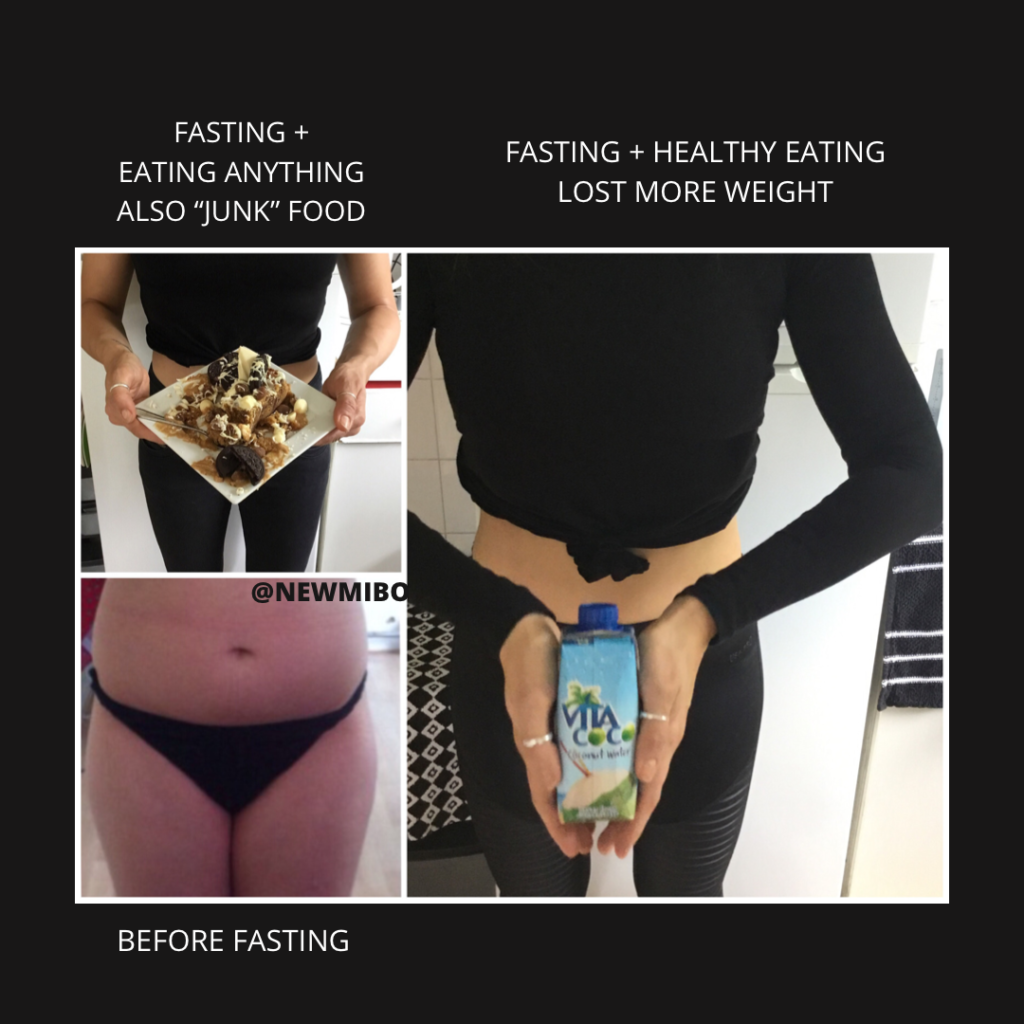
WHAT ABOUT EXERCISE
This may seem quite controversial and perhaps even outrageous to some but I’m here to be honest and share what actually works not what should potentially theoretically work if we lived in an ideal world.
You do not need to exercise in order to lose weight. In fact, exercising can make you gain weight.
Firstly, if you’ve never exercised, do not take on a new excersise plan or challenge at the same time as you’re taking on fasting. It will be too much for your body and mind to deal with. Secondly, you will offset your hunger signals by making yourself hungrier with exercise. You will never learn what your baseline hunger is. What I mean by baseline is how much should you eat just to sustain yourself without any extra help with energy expenditure.
Exercise increases your hunger so you are technically training your body to be hungrier and to need more food.
What we want, is first learn how much our body needs in its resting state. Once we accomplish that and learn to control the adequate intake for our bodies without gaining weight, we can add extra elements, such as exercise.
So am I saying stay in bed and fast? No. Do everything as you normally would, in fact make yourself busier than before, try new activities and hobbies.
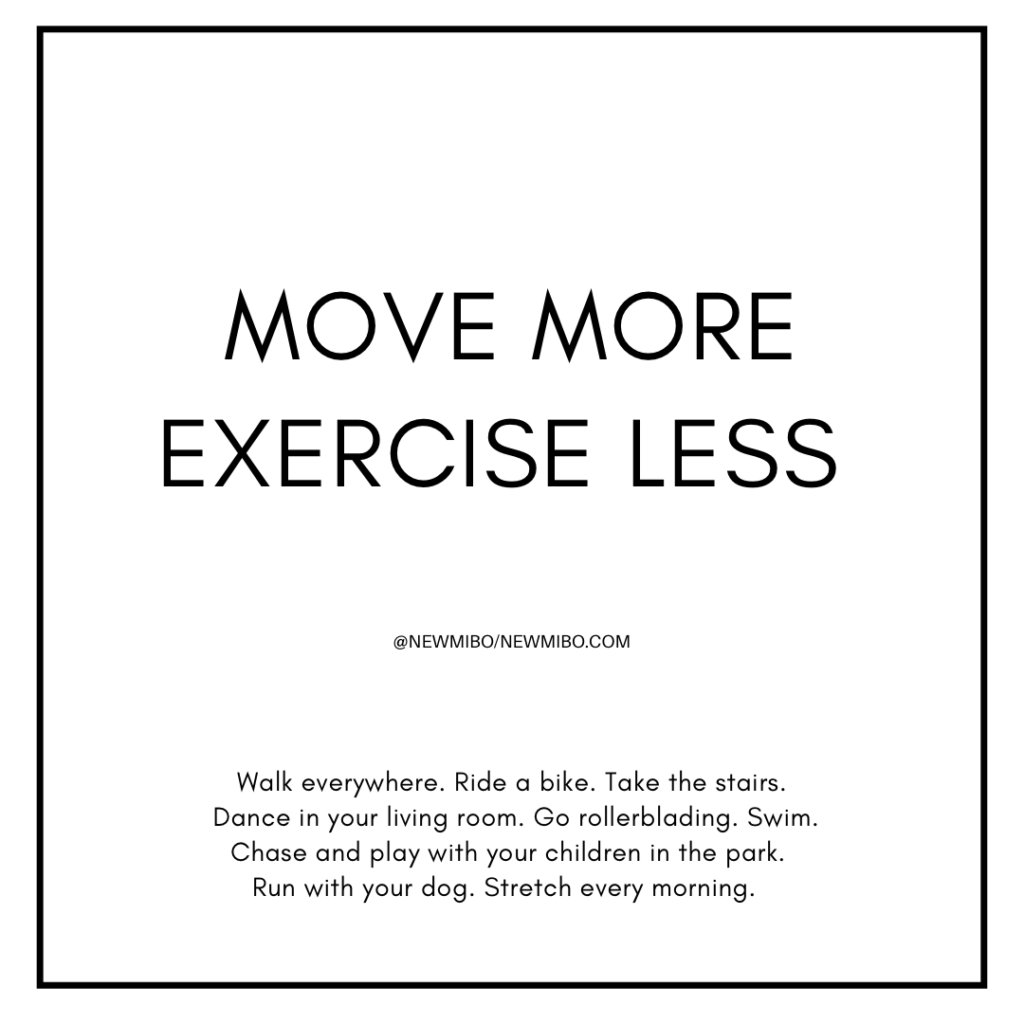
What I strongly recommend is to start walking more. It is the perfect exercise for beginners, for people who are overweight, for everyone who is introducing fasting into their lives, for everyone who doesn’t like and has never exercised.
You do not need to count your steps, simply stop taking the bus, leave your car at home and walk instead. Walk to work, walk to shops, walk for the sake of walking. Make walking something you enjoy, put some music on, listen to a podcast, audio book, take photos of your neighbourhood. There is absolutely no excuse for not walking.
It will not make you hungry, it will not cause injuries, it will not put pressure on your joints, you do not need to spend money, you do not need to feel shy, you do not need any equipment.
If you wish to start exercising, of course you can, although I see many people do this and they give up after a month or struggle with their fasting and eventually give up on both. Exercise is something you can take up later on once you gain control over your eating.
Exercise to get fit, to shape your body, to improve endurance, to gain strength but not because you want to lose weight.
If you are serious about losing weight focus solely on your diet; 1. how much/often you eat and 2. what you eat.
SOURCES:
The Complete guide to fasting, 2016 by Jason Fung MD with Jimmy Moore
Fast Exercise, 2013 by Michael Mosley
Intermittent fasting for weight loss at www.thedietdoctor.com
